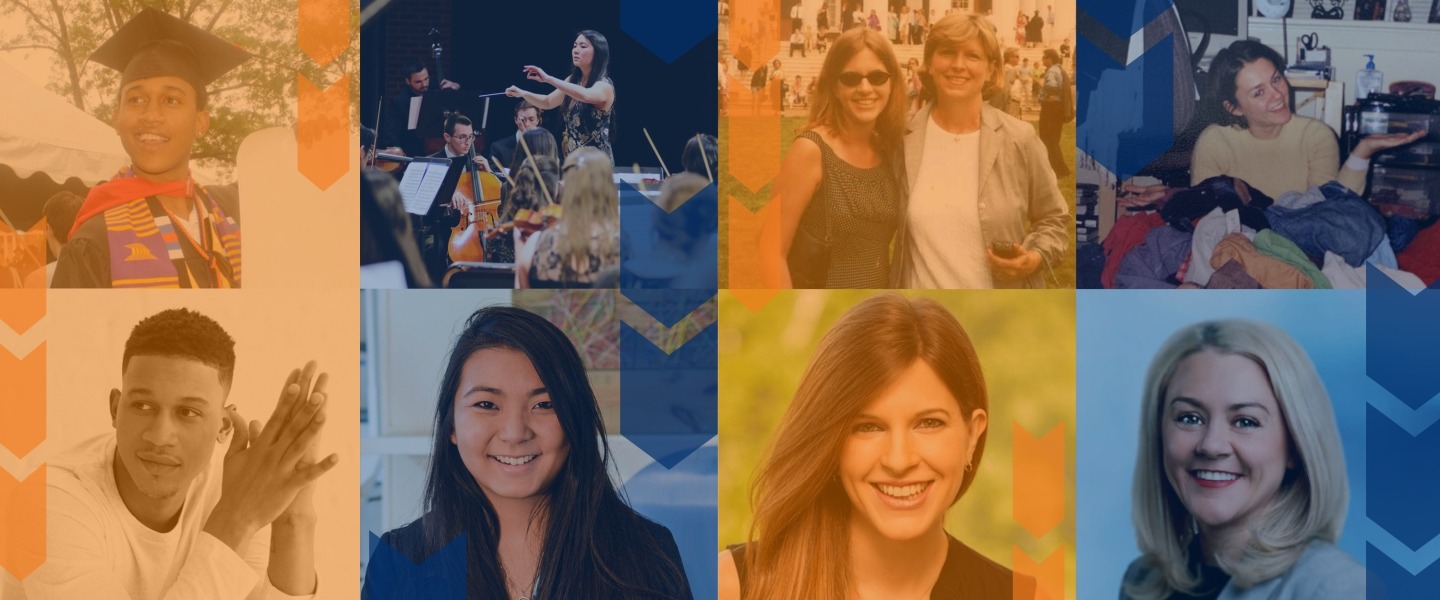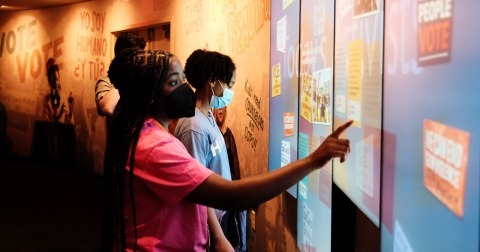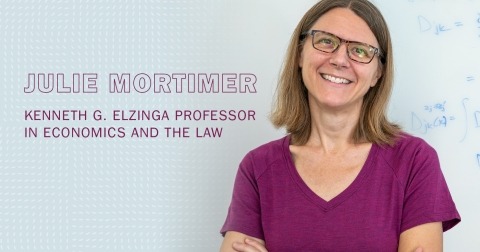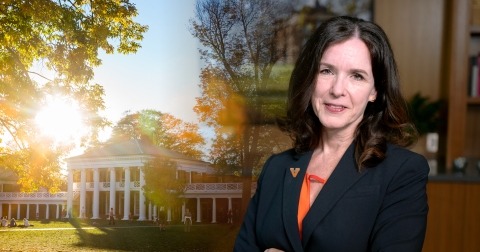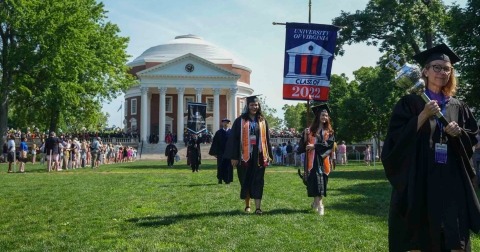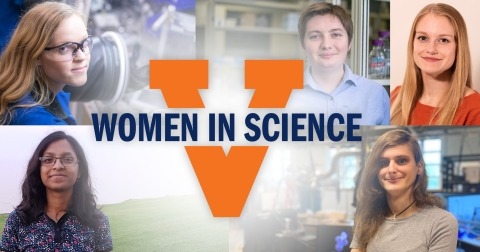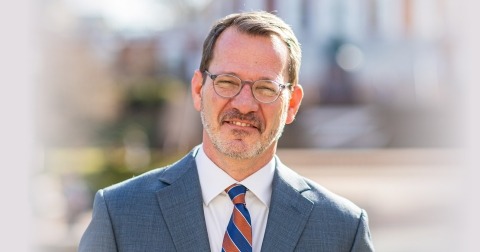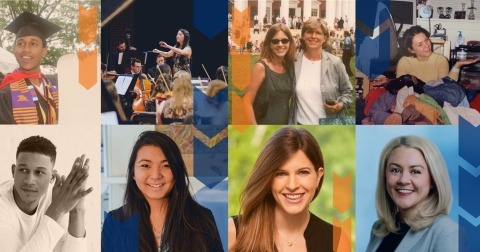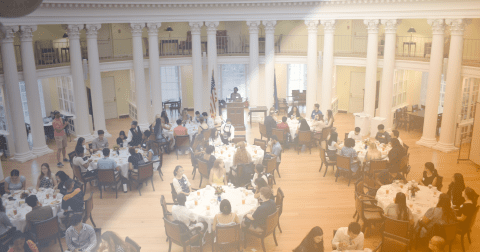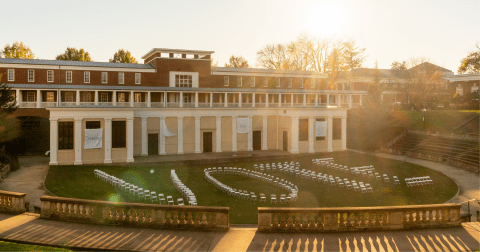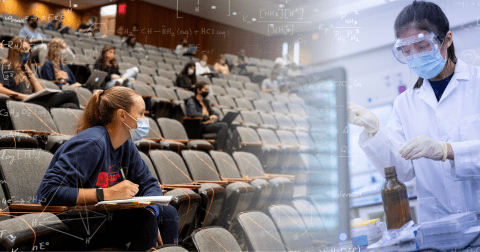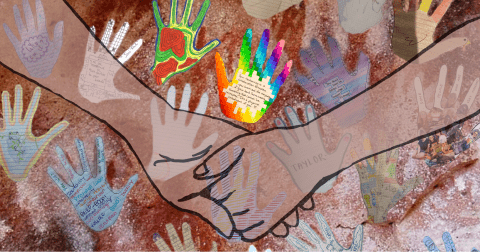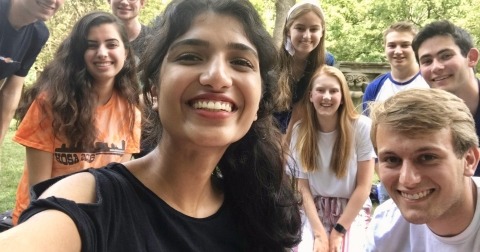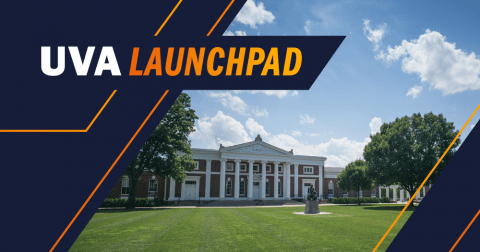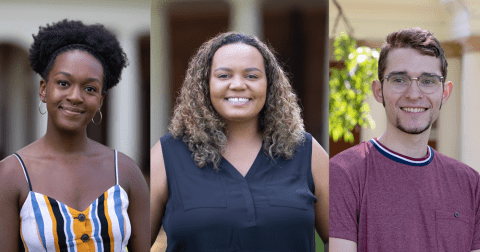Many of UVA’s College of Arts & Sciences alumni with degrees in studio arts, drama or music go on to successful careers in arts and entertainment, in the world’s great museums or educating the next generation of creative minds. However, the number of arts majors who become leaders in business, law, technology and other areas suggests that the skills they learned in the studio and on the stage are helping them thrive in a wide range of pursuits.
According to Kate Melton who works with the UVA Career Center, spearheading a Career Community advising group for students with interests in the creative arts, media and design, the skills that come from studying the creative process may be the key to success in today’s job market.
“Creativity is one of the top skills that employers are seeking, particularly when we're looking at how technology is changing the way we do things,” Melton said. “For example, take this tool Zoom that so many of us are using today. How many creative solutions have had to come about, just to improve this tool over the last two and a half years?”
“One of the best things about working with students in the arts is that they do come with really concrete and tangible skills: teamwork, confidence, resilience, the ability to take criticism and the ability to persist and improve on a project,” Melton added.
“Creativity is one of the top skills that employers are seeking, particularly when we're looking at how technology is changing the way we do things.” - Kate Melton
For many students who major in the arts, those degrees can also lead to a much more rewarding undergraduate experience and a richer life outside of the classroom.
“An art degree gives you the opportunity to explore classes and subjects that wouldn’t be open to students in more structured programs,” said Bill Wylie, Commonwealth Professor of Art with the College’s Department of Studio Art. “And if students approach it from the standpoint of a practitioner and a thinker about what the arts mean, I think that generally they're better prepared to be creative and to be imaginative in whatever they do in life.”
Whether students explore the arts in Ruffin Hall, the Caplin Theater or as a Miller Arts Scholar the arts experience at the College has been made largely possible by philanthropy, and the current Honor the Future campaign will help move the arts at UVA to an even larger stage, enriching the lives of students no matter what their futures hold.
From Musician to Marketing Executive
Like many students in the arts at UVA, Jill Cockerham was a double major. She studied clarinet and choral performance, conducting and music research, and in 2007, she graduated with degrees in both music and economics.
Today she is head of U.S. marketing and communications for Egon Zehnder, a global leadership advisory firm that specializes in executive search and consulting.
"Very rarely do people end up working in the fields they majored in, so why don’t you major in what you’re passionate about and what gives you the broadest set of skills you’ll need in life?” - Jill Cockerham
She credits her fourth-year internship, developing promotions and advertising for the Department of Music, with introducing her to the graphic arts and to the challenges of promoting the department’s events to the Charlottesville community, but it’s her training as a musician that has helped her to see the work as a way of making a meaningful connection with her market. She compares it to playing a piece of music.
“There’s so much more to it than just knowing the notes and the time signature. You also have to take that and humanize it and bring it to life and make it something truly beautiful. In both music and marketing, you have to blend the technical and the artistic together to really hit home with your audience,” Cockerham said.
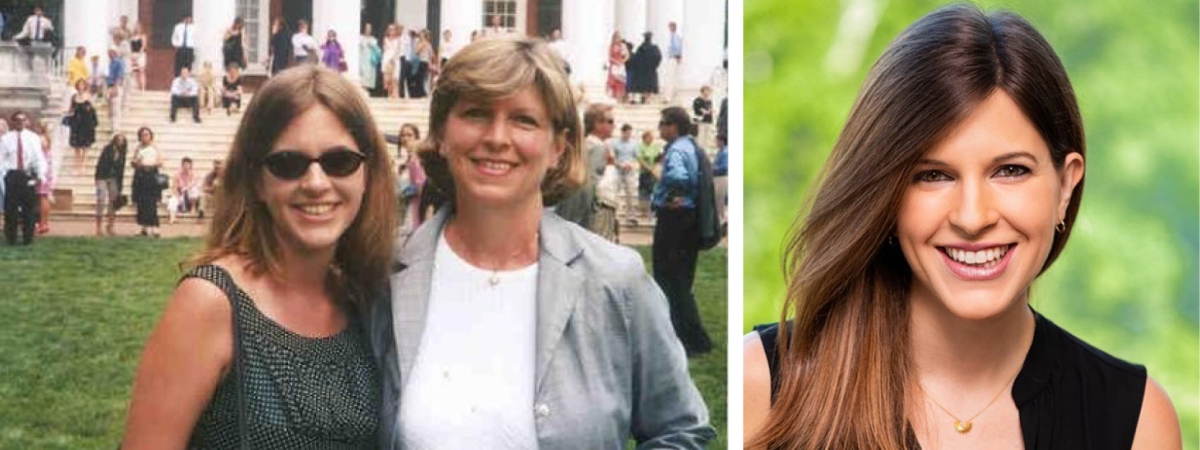 Jill Cockerham (CLAS, '07) then and now. Her job as head of U.S. marketing and communications for Egon Zehnder, a global leadership advisory firm, began with a B.A. in music. Credit: Contributed photo
Jill Cockerham (CLAS, '07) then and now. Her job as head of U.S. marketing and communications for Egon Zehnder, a global leadership advisory firm, began with a B.A. in music. Credit: Contributed photo
After graduating, Cockerham used her experience to land a job as the in-house designer and marketing coordinator for a real-estate agency in Washington, DC. Since then, she has mastered marketing challenges in several industries including architecture and wealth management, where she helped her independent firm grow significantly, launching new digital marketing platforms and a complete rebranding effort.
Looking back on her decision to study music at UVA, she says she wouldn’t have had it any other way.
“I’m very happy with the path I chose,” Cockerham said. “It has really served me well. Very rarely do people end up working in the fields they majored in, so why don’t you major in what you’re passionate about and what gives you the broadest set of skills you’ll need in life?”
Art in the Courtroom
In 2004, when Mary Hyde graduated from UVA with B.A.s in studio art and English, she wasn’t sure how she wanted to use her degrees. Studying law seemed to be a natural fit with her enjoyment of reading and writing, and once in law school, she was immediately drawn to the field of intellectual property – the law governing trademarks and copyrights – because of its connection to art and the creative world.
“You need to find things outside of your career that you enjoy and appreciate.” - Mary Hyde
Success in the legal profession is dependent upon the ability to argue effectively and persuade. Hyde says she learned these skills as a student of the arts critiquing the work of other students, which also helped her to be better at applying a critical eye to her own work.
“Having that experience of looking at your work objectively and really trying to focus on not only what's good about it but what could use some work,” Hyde said. “That has been an invaluable skill to me as an attorney because – and I think this is particularly true about artists – we sort of fall in love with what we're doing as we're doing it, but you need to be able to look at it critically, and you need to let other people look at it too and let that criticism improve the work. I think that has been a really important skill that I learned first in studio art at UVA.”
Learning to thrive in that studio environment is an essential ingredient in building confidence in any profession, she said.
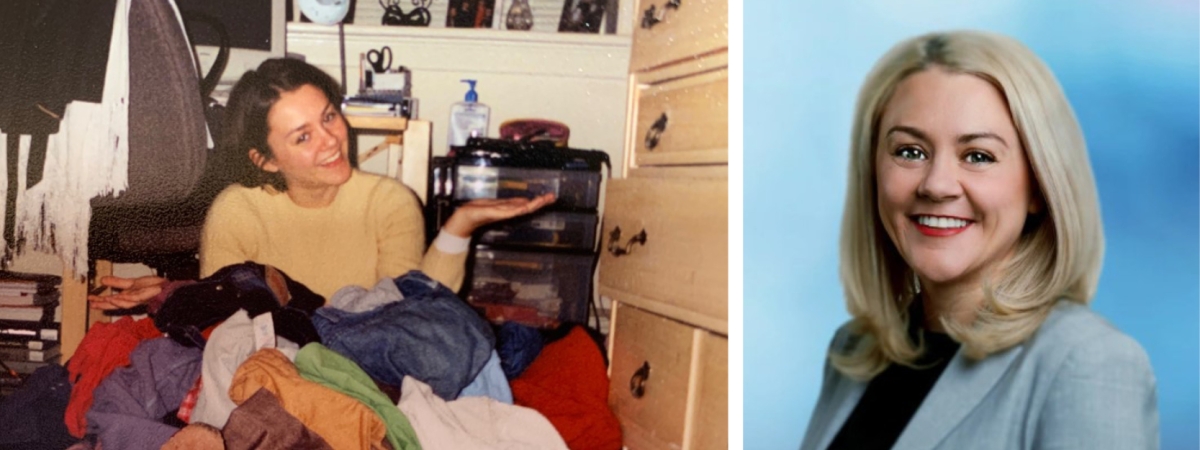 Mary Hyde (CLAS, '04) then and now. A B.A. in studio art was her first step toward a career in intellectual-property law. Credit: Contributed photo
Mary Hyde (CLAS, '04) then and now. A B.A. in studio art was her first step toward a career in intellectual-property law. Credit: Contributed photo
“It can be uncomfortable and even painful at times, but I think there’s only good to be gained from being able to take criticism and use it and learning when not to take criticism…to say ‘You know what? I’m going to stick to my guns.’”
And in a high-stress profession like law, Hyde feels that studying art has helped her develop a strong work-life balance that gives her the opportunity to make more of her life outside of the courtroom.
“You need to find things outside of your career that you enjoy and appreciate,” Hyde said.
A Starring Role as an Entrepreneur
After leaving Charlottesville in 2011 with degrees in drama and studio art, Lance Lemon moved to New York City to pursue a career as an actor in film and television, but his side-job working for Frederick Wildman & Sons, one of the city’s largest importers and distributors of wine led him to fall in love with wine culture. A short while later, he helped open two wine shops of his own in Brooklyn and found himself embracing the role of entrepreneur.
Today, Lemon is co-founder and owner of RichWine, an online wine boutique based in Richmond, Virginia, featuring wines from around the world from environmentally conscious winemakers.
“You can have more than one craft and more than one dream. Find your niche or find your niches and get really good at them." - Lance Lemon
For him, the process of selling wine is like a performance. Anyone can learn the language of wine, he said, but being able to internalize it and talk about it is like learning to play a part on stage.
“It's such an actor thing, you know, when you dive into something so deep and really make it your own, and that's what I do with RichWine,” Lemon said. “I love this business, I love wine, and I love learning about it.”
Lemon also knew that he wasn’t cut out for a traditional career, and being his own boss gives him the opportunity to see his own ideas come to life.
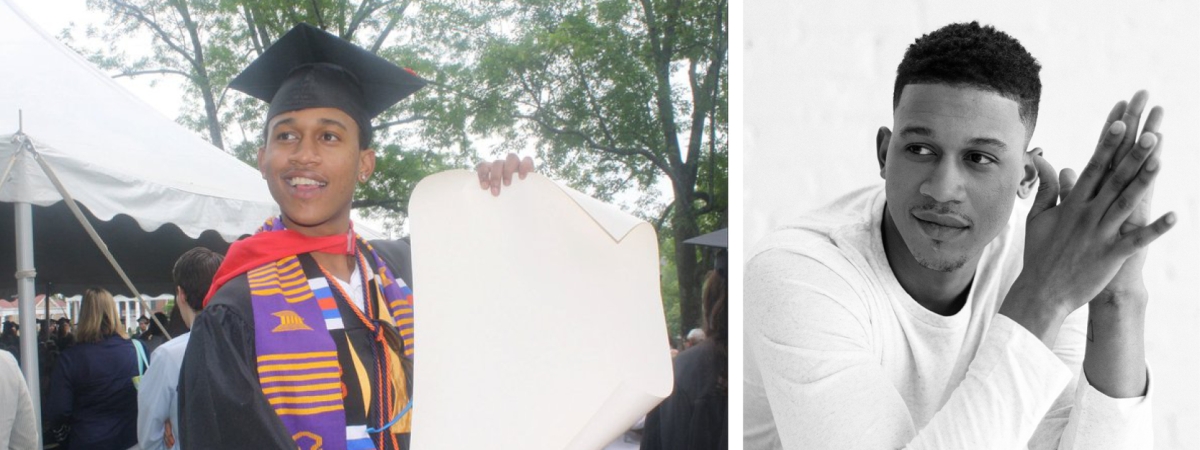 Lance Lemon (CLAS, '11) then and now. Degrees in drama and studio art have been an important ingredient in his success as an entrepreneur. Credit: Contributed photo
Lance Lemon (CLAS, '11) then and now. Degrees in drama and studio art have been an important ingredient in his success as an entrepreneur. Credit: Contributed photo
“As a creative, I always want to be able to get to the point where I’m creating. I'm not a nine-to-five kind of guy, I'm always working,” Lemon said. “As an actor you’ve got to hustle, because you're not always going to be on someone's TV screen right away, so you have to fill up your time with something you can be creative with, and I think entrepreneurship is that for me.”
He still auditions for acting opportunities, and he’s been in a number of independent films, including the award-winning 2016 film Loving, and he sees plenty of room in his life to pursue both passions.
“You don't have to be passionate about just one thing,” Lemon said. “You can have more than one craft and more than one dream. Find your niche or find your niches and get really good at them. Try to be the best you can and have fun while doing it. Stick with your passion and do it with passion or don't do it at all. That’s kind of been my motto.”
When Life is Like a Symphony
Art has always been an important part of Jocelyn Huang’s life, but when she learned to code after taking a website design class in her third year at UVA, something about that appealed to her too.
Huang graduated in 2018 with a BA in music and statistics and a minor in entrepreneurship. She studied flute and conducting and was founder and president of the student-led Cavalier Symphony Orchestra. Those experiences created the foundation for her career as a machine learning engineer for Capital One Financial Corporation where she consults with teams developing consumer behavior models to enhance marketing efforts and to reduce fraud.
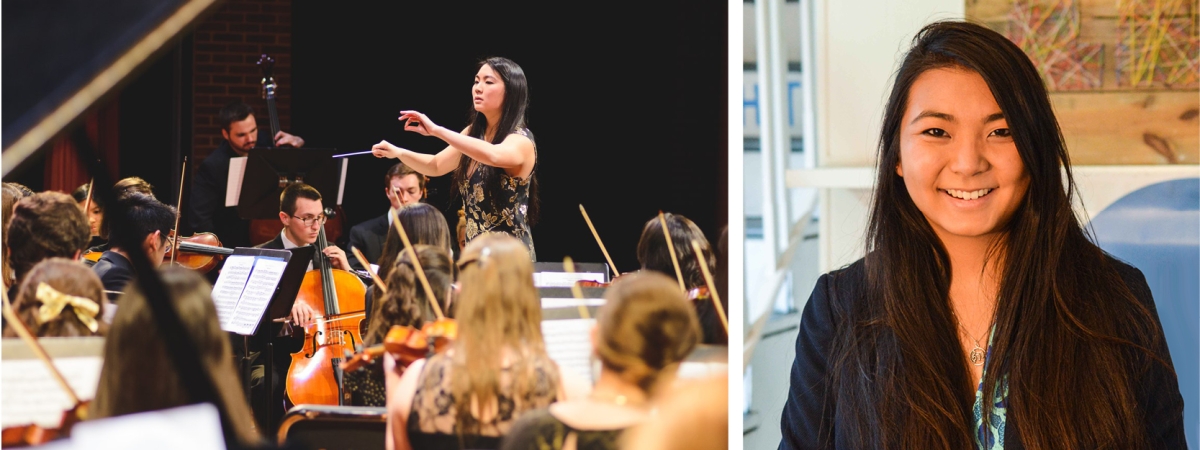 Jocelyn Huang (CLAS, '18) then and now. Her B.A. in music plays an important part in her career as a machine learning engineer for Capital One Financial Corporation. Credit: Contributed photo
Jocelyn Huang (CLAS, '18) then and now. Her B.A. in music plays an important part in her career as a machine learning engineer for Capital One Financial Corporation. Credit: Contributed photo
During a visit to the Spotify headquarters on a fact-finding trip to New York, she saw how the company used machine learning to make music recommendations, and she fell in love with the concept.
After graduation, a job with Capital One offered her a chance to complete a full-time boot camp that would give her the skills needed to be successful as a software developer. The program was specifically designed for employees who were not computer science majors, and she felt the company valued the insights that employees with a wide variety of interests could bring to the rapidly changing tech field.
“My background was especially appealing because they wanted to see people with diverse majors, and you don’t see many liberal arts majors – much less music majors – who are interested in the tech field,” Huang said.
And the discipline of studying an instrument is one of the most important things she feels she has brought to her career.
“It’s the attention to detail and the ability to tune into the emotional side of things even in something as logical as tech,” Huang explained. “You would think there’d be no room for emotion, but at the end of the day, you’re working with people, and your performance depends on how you interact with them.”
“My background was especially appealing because they wanted to see people with diverse majors, and you don’t see many liberal arts majors, much less music majors, who are interested in the tech field.” - Jocelyn Huang
The work team itself is much like a musical ensemble, Huang explained. Each person has a part to play, and the team’s work needs to have an impact that’s greater than the sum of its parts.
Her background in music is also an important part of her persona both in the office and at home. It gives her a meaningful way to bond with her colleagues at work, but it also continues to be a meaningful part of her personal life.
“I couldn't imagine my life without music,” Huang said. “It's just such a fundamental part of who I am.”

